1947 Willys 4-63 ‘Tin Woody’ Wagon Restomod
- Make: Willys
- Model: 4-63
- SubModel: 4-63 ‘Tin Woody’ Wagon
- Type: Wagon
- Trim: ‘Tin Woody’ Wagon Restomod
- Year: 1947
- VIN: 25567
- Color: Tunisian Red with Clear Maple/Mahogany Brown trim
- Engine size: 4.3L V-6
- Number of cylinders: 6
- Transmission: Four-speed Automatic
- Drive type: RWD
- Interior color: Red, ivory and maple
- Vehicle Title: Clear
- Location: Saint Louis, Missouri, United States
Description
1947 Willys 4-63 Wagon Description1947 Willys 4-63 'Tin Woody' Wagon Restomod
First mass-market all-steel station wagons designed and built as passenger vehicles First Willys product to feature an independent front suspension Tunisian Red over Clear Maple with Mahogany Brown inserts on the outside Tunisian Red, ivory and maple interior GM 4.3L V-6 engine with Edelbrock air cleaner, 4-bbl carb, intake and HEI distributor Professionally rebuilt 700R4 four-speed automatic transmission with 1:1 electric overdrive and Dana 44 3.54:1 rear end Aftermarket air-conditioning, power brakes and fog lights Documentation includes installation guide for most of the driveline upgrades, the foglights and a set of color paper photos of the wagonLooking for a rolling billboard, one that will drive fine on the interstate as well as on a two-lane residential street? MotoeXotica Classic Cars has the perfect tool to market your business or service - this 1947 Willys 4-63 "Tin Woody" Wagon Restomod. This example was one of handful of wagons made in 1947. It under went a full cosmetic and mechanical restoration by a formal national guard mechanic and it was done professionally with loving care.
Finished as all early Tin Woodies were - Tunisian Red roof, cowl, hood and front fenders with Clear Maple doors, rear fenders and cargo doors that had Mahogany Brown inserts - this Willys has paint and trim that are in overall very good order.
The windows are clear and crack-free and the wagon's lights are haze-free and look good, including the Unity Night-Eye amber fog lights atop the front bumper. This wagon's bodywork is straight and solid while the engine bay is very tidy, the battery looks new. The electrics on the fire wall are second to none, the cargo area is clean and in great shape and the bumpers are in great shape, too!
Under hood, a modern 4.3L General Motors V-6 replaces the original L-134 Go-Devil flathead inline four-cylinder. The engine has been upgraded with Edelbrock air cleaner, four-barrel carburetor, intake manifold and high-energy ignition. The GM mill is linked to a professionally rebuilt 700R4 four-speed automatic transmission with a 1:1 electric overdrive and a Dana 44 rear end with 3.54:1 gearing. Driver convenience features include aftermarket air-conditioning and power brakes.
This wagon rolls on Nexen AT Pro radials, size 235/75R15 at all four corners. Each tire is wrapped around a steel wheel topped by a Willys factory moon with a yellow accent line. The tires are in better-than-average shape while the wheel covers are in satisfactory condition.
Inside, the wagon's striking interior is overall great shape. The Ivory front buckets, middle row short bench and full rear split-folding bench seats all look great and along with the two-spoke ivory steering wheel, provide fantastic contrast to the red metal instrument panel and maple inner door panels. The wooden floor provides another contrasting element to the seats. A set of aftermarket Dolphin gauges reside in the center dash cluster.
The Willys Jeep Station Wagon, Jeep Utility Wagon and Jeep Panel Delivery are automobiles produced by Willys in the United States, from 1946 until 1965. They were the first mass-market all-steel station wagons designed and built as a passenger vehicle.
With more than 300,000 wagons and its variants built in the U.S., it was one of Willys' most successful post-World War II models. Its production coincided with consumers moving to the suburbs.
The Jeep Wagon was designed in the mid-1940s by industrial designer Brooks Stevens. Willys did not make its own bodies yet car bodies were in high demand and Willys was known to have limited finances. Brooks therefore designed bodies that could be built by sheet metal fabricators who normally made parts for household appliances and could draw sheet metal no more than six inches.
The steel body was efficient to mass-produce, easier to maintain and safer than the real wood-bodied station wagon versions at the time.
The Jeep Wagon was the first Willys product with independent front suspension. Barney Roos, Willys' chief engineer, developed a system based on a transverse seven-leaf spring. The system, called "Planadyne" by Willys, was similar in concept to the "planar" suspension Roos developed for Studebaker in the mid-1930s.
Competition to this Willys in 1947 was Crosley's all-steel wagon.
Documentation on this vehicle includes installation guide for most of the driveline upgrades, the foglights and a set of color paper photos of the wagon.
So, if you're looking for a vehicle to make you say, "Dilly-Dilly!" come check out this Willys at MotoeXotica Classic Cars today.
This wagon is currently located at our facility in St. Louis, Missouri. Current mileage on the odometer shows xx,xxx miles. It is sold as is, where is, on a clean and clear, mileage exempt title. GET OUT AND DRIVE!!!
Please Click Here to Watch Our YouTube Video!
VIN: 25567
Note: Please see full terms and conditions listed below that pertain to the purchase of any said vehicle, thank you.
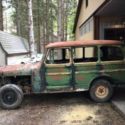 1947 Willys Wagon model 4-63 for restoration plus parts Wagon Jeep CJ 4WD 2WD
1947 Willys Wagon model 4-63 for restoration plus parts Wagon Jeep CJ 4WD 2WD
Mileage: 250000
 1947 Willys Wagon
1947 Willys Wagon
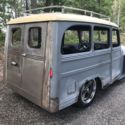 1953 Willys Wagon Wagon Grey RWD Automatic restomod
1953 Willys Wagon Wagon Grey RWD Automatic restomod
Mileage: 21
 1947 Willys Wagon Jeep
1947 Willys Wagon Jeep
Mileage: 4120
 1947 Willys Jeep Tin Woody Wagon
1947 Willys Jeep Tin Woody Wagon
Mileage: 31,921
 1947 WILLYS WAGON STREET ROD RADICAL 413 WEDGE MOTOR FOR SALE
1947 WILLYS WAGON STREET ROD RADICAL 413 WEDGE MOTOR FOR SALE
Mileage: 26,550
 1947 Willys Station Wagon "WILLY WAG", Full Custom Restoration, 360 V8 Wagoneer
1947 Willys Station Wagon "WILLY WAG", Full Custom Restoration, 360 V8 Wagoneer
Mileage: 10,504
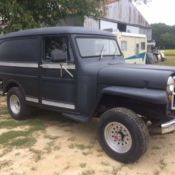 1957 Willys Overland Jeep Panel Wagon Project Restomod
1957 Willys Overland Jeep Panel Wagon Project Restomod
Mileage: N/A
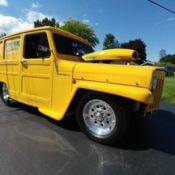 1959 willys all steel prostreet wagon streetrod hotrod 41 willys coupe
1959 willys all steel prostreet wagon streetrod hotrod 41 willys coupe
Mileage: 1,550



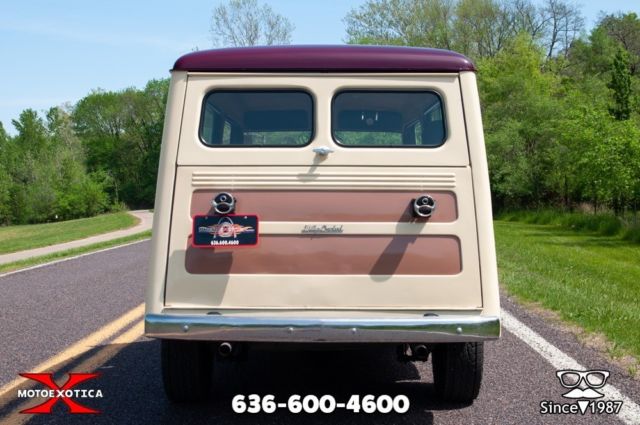






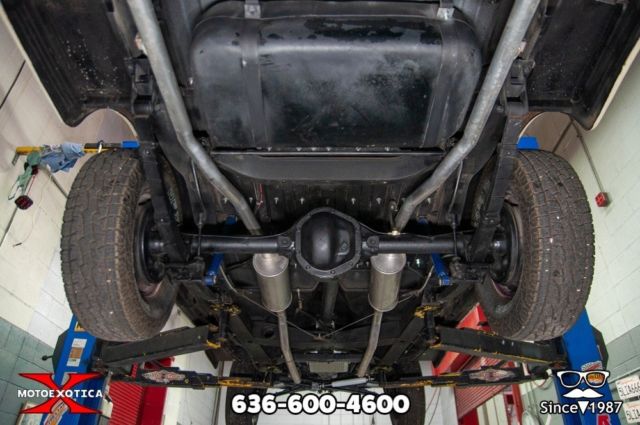

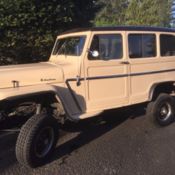 1962 Willys Wagon - Restomod 318 V8 / Auto / 4x4
1962 Willys Wagon - Restomod 318 V8 / Auto / 4x4